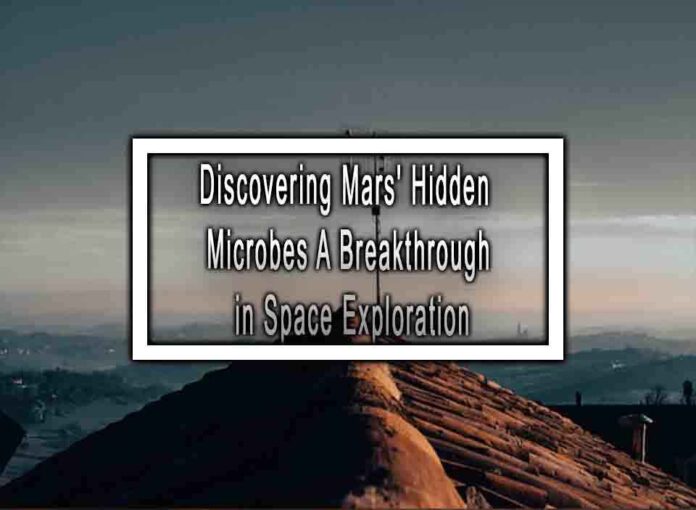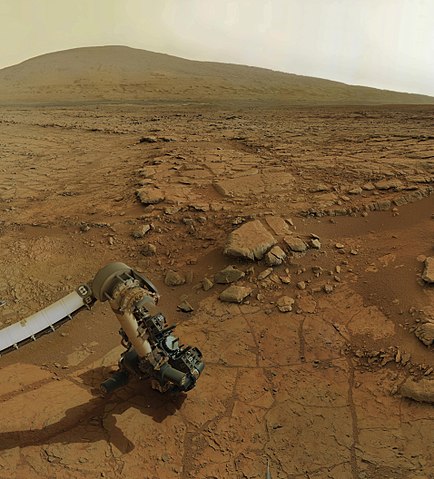The discovery of hidden microbes on Mars would indeed be a groundbreaking achievement in space exploration and astrobiology. While there is currently no direct evidence of life on Mars, the possibility of past or present microbial life has been a central focus of Mars exploration missions. Here’s how such a discovery could represent a significant breakthrough:
1. Evidence of Extraterrestrial Life:
- The discovery of microbes on Mars would provide concrete evidence that life exists beyond Earth, marking a historic milestone in our understanding of the potential for life elsewhere in the universe.
2. Astrobiology Advancements:
- Such a discovery would greatly advance the field of astrobiology, which seeks to understand the origins, evolution, and distribution of life in the cosmos. It would provide critical insights into the conditions under which life can thrive.

3. Implications for Habitability:
- Finding microbes on Mars would suggest that the planet, or at least specific regions, could potentially support life. This information would be invaluable for planning future human missions and colonization efforts.
4. Technological Advancements:
- The technology and methods required to detect and study Martian microbes would represent significant advancements in space exploration and microbiology. Developing these capabilities would have broader implications for scientific research.
5. Insights into Martian History:
- Microbial life on Mars, if confirmed, could offer clues about the planet’s past climate, geology, and evolution. Understanding how life adapted and survived in Mars’ harsh conditions would be enlightening.
6. Ethical Considerations:
- The discovery of Martian life would raise important ethical questions about the preservation of potentially fragile ecosystems on Mars. Protecting native Martian life, if it exists, could become a priority for future missions.
7. International Collaboration:
- The quest to discover Martian life involves collaboration among multiple space agencies and countries. A positive confirmation would likely lead to increased international cooperation in exploring Mars.
8. Societal Impact:
- The discovery of Martian life would capture the public’s imagination and generate widespread interest in space exploration and astrobiology. It could inspire future generations of scientists and explorers.
9. Preparing for Human Missions:
- Finding microbes on Mars would underscore the importance of rigorous sterilization protocols for future human missions to avoid contamination of Martian ecosystems and to protect Earth from potential Martian pathogens.
10. New Research Directions:
It’s essential to approach the search for Martian life with scientific rigor and skepticism, as the discovery of extraterrestrial life would have profound implications for our understanding of life’s place in the universe. While no definitive evidence has been found to date, ongoing and future missions, such as NASA’s Perseverance rover and the search for subsurface brines, continue to explore the possibility of life on Mars. Each new mission brings us closer to potentially making this historic breakthrough in space exploration.











